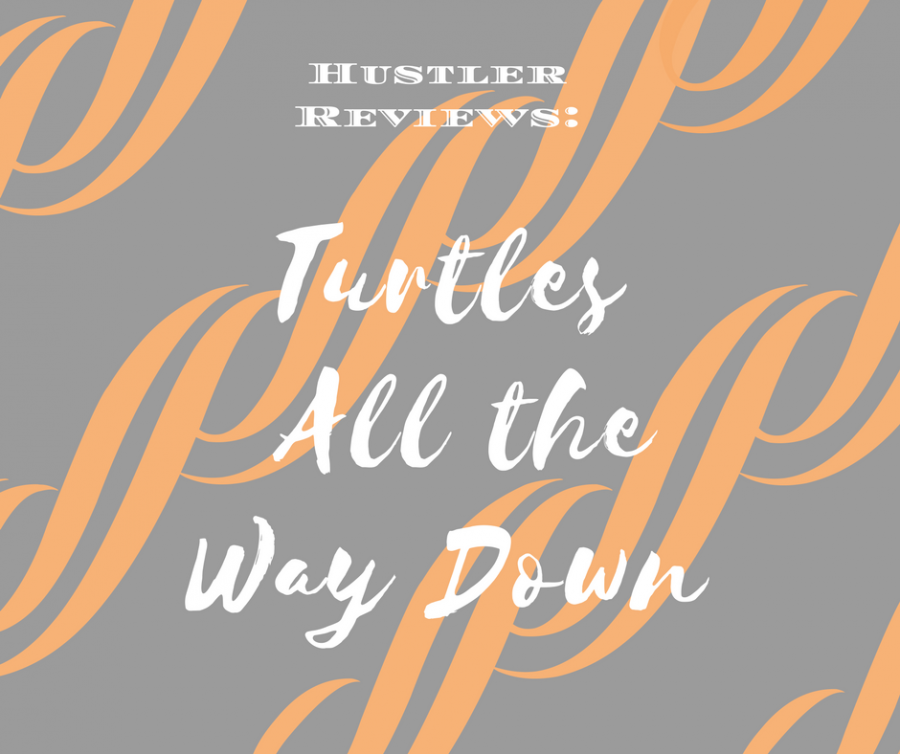Until now, John Green was widely considered a novelist for teens. After all, The Fault in Our Stars treats every bookish girl’s fantasy: boy takes girl across the world to meet her lifelong favorite author. However, his newest book, Turtles All the Way Down, doesn’t pull similar stunts. In fact, it seems to mark a departure from his previous books and from the young adult genre in general. It deftly balances plot with philosophy and imbues mood. A major theme throughout the novel is identity: to what extent am I my thoughts or my possessions? Or can I exist separately from both?
Concurrent with this question, Green dabbles in metafiction. The novel’s first words are sixteen-year-old Aza’s wondering if she is fictional. Later, she learns through her quirky, outgoing friend Daisy that billionaire Russell Pickett has disappeared. The city is offering a hefty sum for finding him. At Daisy’s urgings, Aza tries to renew an old friendship with Davis, Pickett’s son. Beyond this basic gist, the plot involves much more: a car lovingly named Harold, an immortal lizard, a fight caused by Star Wars fanfiction and stargazing nights full of teenage philosophical angst.
Like most good books, Turtles gestures toward certain thematic questions without ever fully answering them. The result is a kind of question mark in the reader’s mind, a palpable remnant of potential and possibility that lingers long after the book has ended. Unlike most young adult books, or Green’s prior novels, Turtles is a work that clearly merits literary analysis.
That’s not to say it’s without its flaws. In the midst of moody philosophizing, the characters occasionally veer toward cliche and use dialogue such as, “Everybody disappears eventually,” and, “Seeing your past..can for me at least be physically painful.” Also, the work is surprisingly deflating at parts. For Aza’s extreme panic in the height of her panic attacks, the narrator’s tone is incongruously drab. Finally, the ending aspires to be heartwarming, but instead feels derivative.
Overall, however, the novel successfully gives life to every young person’s internal questions, to the self-debates that exist below the surface. This feat allows the reader not only to emotionally connect to Aza, Davis and Daisy, but also to internalize them. Like Catcher in the Rye, the book makes you feel that their experiences have somehow become your memories. Or maybe it’s the other way around.
Ищите где взять микрозайм на карту онлайн физическому лицу? На странице rusbank.net представлен удобный поиск, сравнение и условия по самым выгодными микрозаймам от МФО.



